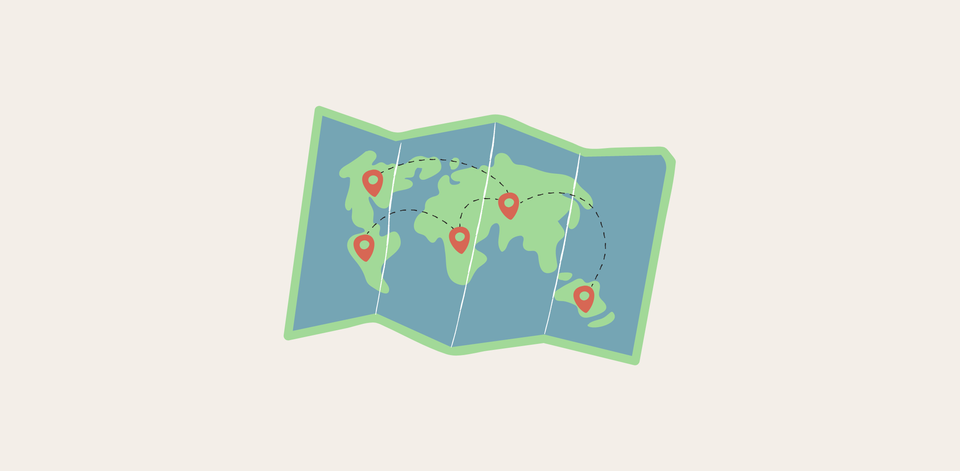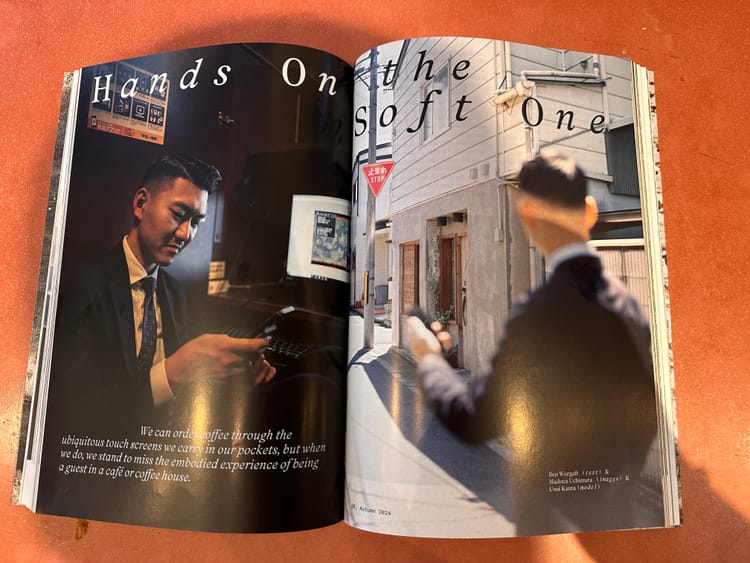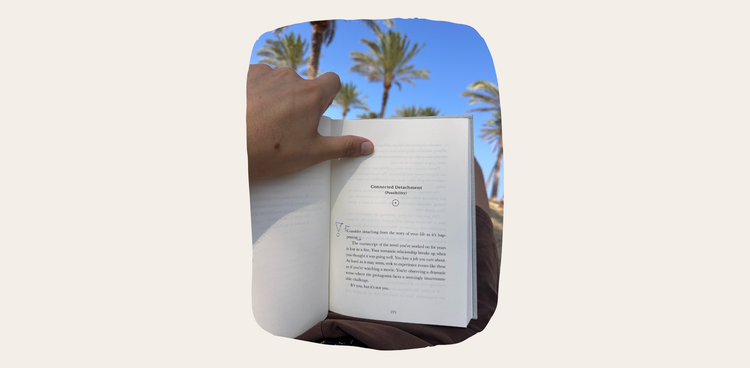You won't Find Yourself Travelling, or: Stillness is always available

Are you in your twenties and unhappy with that self you happen to be at home? Well, just go travelling and find a better one!
This idea that going somewhere else is going to bring a peace and clarity that's unavailable otherwise - on the surface, it seems reasonable enough. To the ancient stoics, though, it’s up there with the greatest follies one could commit. In a rare case of actually sounding expressive, Marcus Aurelius even calls it idiotic. Addressing himself in a journal entry (Meditations 4.3), he writes:
People try to get away from it all to the country, to the beach, to the mountains. You always wish that you could too. Which is idiotic: You can get away from it anytime you like. By going within. Nowhere you can go is more peaceful - more free of interruptions - than your own soul.
Brilliant idea. But when I first read this two years ago, all I could think was: “Speak for yourself, Marcus.” While his soul might’ve been a place of of peace and serenity, mine felt more like a dodgy circus. You know, one of those places where you’re constantly anxious that the high-wire act is gonna fall of soon. To go within, then, seemed like less of an instantaneous vacation and more of a guaranteed amplifier for whatever turmoil I was trying to escape in the first place.
The good news: We’ve collectively gotten amazing at never having to go within. Whenever we run the risk of actually sitting with our circus of a mind, we have the world’s most engaging entertainment in our pocket at all times, only an all-too-routine sweep of the hand away. God forbid one would actually feel boredom for a minute or twelve - we’ve solved that problem. And in those moments where the mind gets too loud for our liking, there’s a convenient buffet of algorithmically curated content perfectly tailored to quiet that noisy thing right back down. Ever noticed how some people (incl. yours truly for some time) literally can’t go to sleep anymore without some sort of electronic pacifier of the content variation?
By categorically nullifying the option of internal refuge, we're only left with external alternative. To get a moment of stillness, we assume, requires complete external stillness. To the chronically agitated mind, the prospect of getting away from it all seems like salvation. The only issue: No matter how still the environment might be, you’re not getting away from it all. Right, Socrates?
“How can you wonder your travels do you no good, when you carry yourself around with you?”
Someone was hiding in your suitcase and they’re here to spoil the fun. That part of the mind that was so skilfully suppressed by your splendid scrolling diet seems to have found the itinerary - and they’re tagging along whether you like it or not. It almost seems cynical: Even the most serene of lakes is of no use when your mind just won’t stop the chatter. So what’s left, then, for the exhausted and lost? Well, here we have Seneca resonating the socratic sentiment:
A change of character, not a change of air, is what you need. […] All that dashing about turns out to be quite futile. And if you want to know why all this running away cannot help you, the answer is simply this: You are running away in your own company.
A change of character, yeah? I guess this is where we come back to this idea of “finding yourself”. There’s something quite romantic about the idea of your “self” just being somewhere out there - and all you have to do is find it. In classic Arrival Fallacy fashion, the rationale is that once you’ve found yourself, all the other stuff will be easy as well. If only it were so easy. The idea that you could skip the hard work and just go to Bali instead, that you never have to acknowledge your inner workings if you just backpack hard enough - it was idiotic 2000 years ago and it’s idiotic today. And I get to say that because I did it.
Over the last two years of travel, I’ve met a lot of people. I’ve seen a lot of them running away wondering why they can’t shake themselves off. And even if I would’ve never admitted it, I too had the hope that the change of air was gonna sort me out for good. Obviously, it didn’t.
But, in all fairness, I’ve also met a lot of people that derived a substantial change of character from their travels. So how does that add up? I believe the mechanism lies in an old Zen saying:
“A fool that persists in his folly will become wise.”
Try a pointless thing long enough and you might just discover that it was pointless in the first place. Cry on enough Paradise Islands and you might just start to wonder if a Paradise Island is the answer to your problems. Look for yourself in enough countries and you might just discover that the common denominator was always in your suitcase.
Once the illusion of external salvation crumbles before your eyes, once the next trip doesn’t promise your “self” anymore, you’re forced to look elsewhere. Elsewhere, in this case, leaving very limited choice: If “external” didn’t work, there’s only “internal” left to work with.
Of course, this recognition isn’t salvation either. It’s simply where the real work starts. It means allowing the occasional moment of boredom back into your life, actually hearing yourself out for once. It means going to bed without some sort of content to drown out your thoughts and allowing the mind to process the day. It might even mean sitting down and dedicating some time to becoming familiar with the mind (aka meditate). In the most obvious of ways, “finding yourself” simply requires that you stop running away from yourself as fast as technologically possible.
And what happens when you do? Well, somewhat unsurprisingly given the fact that people have been writing about this for literally thousands of years, the result is stillness. And I don’t mean the conditional stillness that a vacation offers. The kind of stillness that can be disturbed by a lawnmower or that goddamn baby one room over. I mean this unconditional stillness that underlies experience, always available if you only choose to return to it. You see, as a matter of experience, consciousness is made up of content (like that baby screaming) and context (that which is aware of the screaming) - and context can never be tainted. Like a mirror that remains unchanged by whatever it reflects, it can’t be disturbed because it is the very thing in which disturbance arises. But this, of course, can never become apparent if we flee into a) our phones or b) the next available plane the moment that disturbance arises. In the words of Neuroscientist Sam Harris:
“That which is aware of sadness is not sad, That which is aware of fear is not fearful. The moment I am lost in thought, however, I’m as confused as anyone else”
The best thing about travel as a means of “finding yourself”, then, is that it makes the futility of that endeavour so perfectly obvious. If you only ever get to experience yourself in one environment, you still get to live in the delusion that the issue might lie in your environment. But once you’ve experienced yourself in many different environments only to find that the problems came along, that delusion gets a lot harder to keep up. When it crumbles, you’re not only free to allocate your energy into endeavours that actually bring that so-desired stillness - you’re also free to take travel for what it truly is.
Once it loses its “means-to-an-end” kinda status, what is the point? Well, here I sit in Perth, fresh off a plane and ready to start from scratch once more. I don’t know anyone here and I love it. It’s gonna be exciting, challenging and rewarding - I just don't expect to find myself. I’m already here. I came on that plane. Once travel isn’t burdened with the obligation to “fix you”, it can just be a joyful, curious exploration of the world. Nothing more and nothing less.




Comments ()